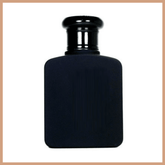The Best Diffuser Fragrances for Sleep
The perfect night of restful, deep, and restorative sleep is something many of us struggle to attain. Work stress keeps us up, kids are restless, or schedules simply don’t make room for early nights and clear minds.
The good news is that essential oils can greatly help your sleep quality when used in a diffuser. Filling your bedroom with therapeutic vapour is an excellent way to begin your journey toward better sleep.
So, you’ve got your diffuser all set up, but what oils should you use? Keep reading, as we’ve found the best diffuser fragrances for better sleep.
Lavender: the best overall fragrance for sleep
Let’s begin with the king of all the sleep-friendly fragrances, lavender. Yes, that stunning flower associated with French fields and rustic bouquets is a master of zzz’s. We know this for a fact, as lavender has been proven time and again to be a helpful sleep aid.
One of the reasons why lavender is so fantastic for sleep is because it reduces stress and calms anxiety. During a particularly demanding period at work, or a phase of nagging anxiety, use lavender essential oils in your diffuser before bed. Read a book or listen to a podcast as you lie down, relax, and inhale that wonderfully therapeutic lavender haze.

Roman chamomile: for when you’re finding it hard to wind down
Chamomile is a fascinating plant with a vast background in ancient medicine and remedies.
Many of us are aware of chamomile tea’s soothing effect on an upset stomach, but inhaling chamomile fragrance is also highly beneficial. Studies have proven that inhaling chamomile essential oils can have a sedative effect, inducing a sense of drowsiness before sleep.
What’s more, Roman chamomile can also help to alleviate symptoms of depression, anxiety, and PMS. We all know how an anxious mind or constant worry can disrupt our sleep patterns, so fill your bedroom with calming Roman chamomile and give yourself over to blissful sleepiness.
Bergamot: for when you’re feeling low
Bergamot (that fruity, citrusy aroma associated with Earl Grey tea) has been proven to trigger the release of “feel good” hormones. Serotonin and dopamine are hormones responsible for regulating our mood and stress levels, and whiffing bergamot can trigger the brain to pump them out.
If you feel that you are struggling to fall or stay asleep due to worry, stress, or just plain-old low mood, try bergamot. It may help you to alleviate some of those “pit of the stomach” feelings and rearrange your thoughts for deep, undisturbed sleep. Plus, it doesn’t hurt that bergamot is a delicious aroma with a mixture of sweet, tangy, fruity, and spicy notes.

Vanilla: for when your mind is racing (or when you’re craving sweet treats)
When you think of vanilla, do you instantly conjure thoughts of warmth, cosiness, and sensuality? Spot on. Vanilla has a soft, deep aroma that doesn’t generally shock the senses or make you perk up and spring to attention. That’s because it is known to have a slight sedative effect when inhaled, dulling that alert, flighty sensation we associate with stress. What’s more, it can even help to lower blood pressure for long-term heart health.
For gourmands who love sweet treats and the smell of fresh baking or spun sugar, vanilla is the perfect scent for unwinding before bed.
Geranium: for people who suffer from sleep apnea disruptions or hormonal imbalances
Does the sight of bright geraniums put a smile on your face and add a little cheer to your day? Well, their distilled aroma may have the same effect.
Geranium essential oils are known to induce feelings of calm and restfulness, even in the medical profession. Patients who suffer from sleep apnea are often given geranium essential oils to reduce disruptions during sleep and induce a sense of calm.
What’s more, geranium essential oils have been proven to help with hormonal imbalances. Women who suffer from emotional distress due to PMS or menopause have found that geranium essential oils can relieve and reduce feelings of depression.
If your hormones are giving you a hard time emotionally, leading to disrupted sleep, try dropping geranium essential oil into your diffuser. Lay back with a feel-good book and let that vapor work its magic on your adrenal cortex.

Valerian: for when you want to fall asleep faster
While valerian essential oil isn’t everyone’s favourite aroma, it is incredibly therapeutic. In fact, it has a fascinating history spanning back to ancient Greece and Rome. Interestingly, the ancient Roman physician Galen would give valerian to patients suffering from insomnia, and who are we to argue? In much more recent times, in-depth studies have been conducted that prove the power of valerian to reduce the time to fall asleep, reduce night waking, and improve overall sleep quality.
If you don’t find the scent of valerian to be appealing, you could blend it with something sweeter such as bergamot. Not only will this create a more pleasant aroma, but it will add further mood-boosting, sleep-enhancing properties to your vapour.
Clary Sage: for smelling before a stressful event
In the aromatherapy world, clary sage is known for being a wonderful stress reliever, antidepressant aid, and a soother of PMS or menopause symptoms. Studies have proven that clary sage, thanks to the presence of linalyl acetate, does indeed reduce mental distress and hormone-related anxiety. Clary sage can have a slight sedative effect, helping to induce a feeling of stillness and restfulness.
If you find that stressful thoughts and feelings mount toward the end of the day, add clary sage to your diffuser when you get home from work. The aroma will help to “untangle” those anxious feelings and prepare your body and mind for sleep.
Sandalwood: for when you can’t seem to stay asleep
There’s just something so mysterious and ancient about the sweet, woody aroma of sandalwood, don’t you think? Not only is it rather intoxicating, but it may also help you to fall and remain asleep.
Not only can sandalwood help you to fall asleep by causing a mild sedative effect, but it can boost your REM cycle duration. The better and longer your “deep” sleep cycles are, the more your body can replenish and repair during the night. This not only helps with energy and productivity the next day, but it helps to slow the signs of aging and reduce disease-causing inflammation. Running out the door to get some sandalwood essential oil? We don’t blame you!

Peppermint: the best fragrance for when you are sick or congested
This one is a bit of a “wild card” as peppermint aroma is more commonly associated with alertness and focus. However, If a stomach bug, stress-induced nausea, or a cold are keeping sleep at arm’s length, peppermint may help you to feel settled.
When we feel sick, cleaner, sharper scents are often more pleasant than sweet or heady ones such as vanilla or jasmine. What’s more, the aroma of peppermint may be reminiscent of vapour rub at night when you had a cold as a child.
Pop peppermint oil into your diffuser before bedtime and allow the room to freshen before slipping between the sheets for, hopefully, a restful sleep.
The takeaway
Quality sleep can transform your mental and physical wellness, helping you to get the most out of every day. Start by curating a collection of sleep-friendly essential oils like the ones we have discussed here.
Experiment with different fusions to create the scent and effect you desire. For example, you could mix a few drops of lavender with a drop of valerian, bergamot, and vanilla and add them to your diffuser. Write down your final “recipe” and get into a habit of using it every night, establishing a restful (and aromatic) sleep routine.
To maximize the effects of essential oils for sleep health, you could add a few drops to a hot bath before bed. For example, add a few drops of chamomile essential oil to a carrier oil such as jojoba, and add to your bath. You’ll be dozing off in no time!









Leave a comment
All blog comments are checked prior to publishing